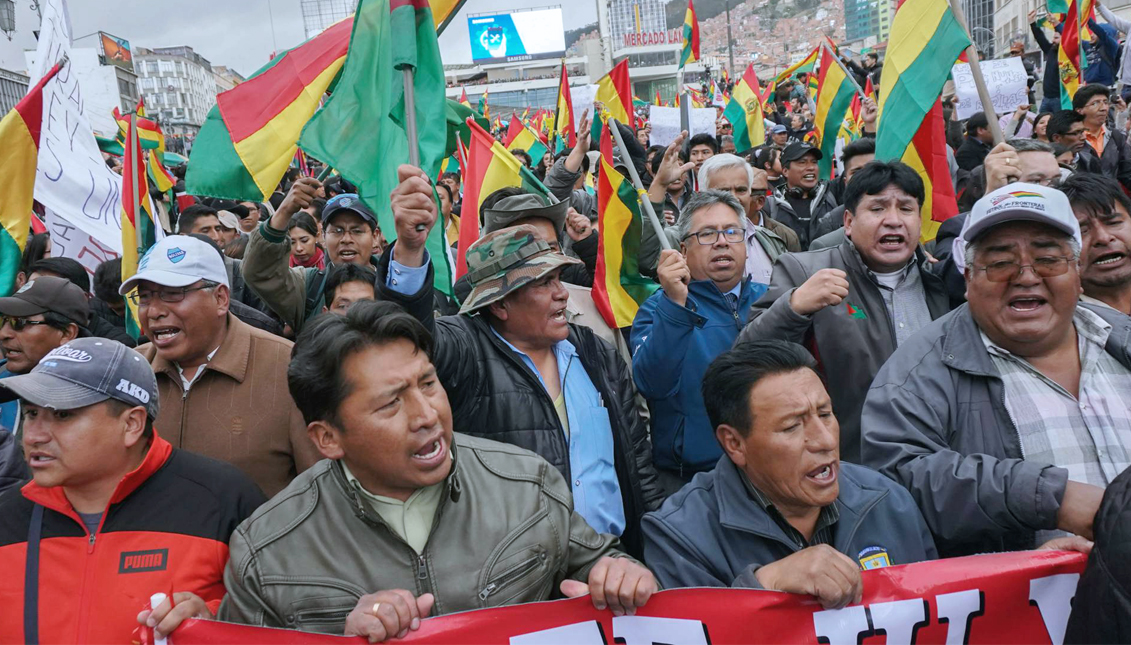
Bolivian protests bring country to a standstill and demand election go ahead
Protests in Bolivia have erupted because of the government's decision to delay their presidential election for a third time to Oct. 18.
The decision was made two weeks ago, but supporters of the ousted former president Evo Morales want the country to go forward with the previous date, which is Sept 6.
Bolivia has been politically polarized ever since Morales was forced out by a U.S.-backed military coup in November 2019 and now he is in political exile in Argentina.
The socialist leader sought a fourth term as president in the Oct. 20 elections, but doubts over the results were raised by conservative politicians and a misleading report from the Organization of American States.
More people grew skeptical of the results and soon, protesters claiming that Morales was a dictator that needed to be removed took to the streets. Members of this movement are known as “The Resistance”
The protests lasted for a month after the election resulted in 33 deaths and over 1,500 arrests.
Jeanine Añez, conservative former vice president of the Bolivian Senate, made herself interim president on Nov. 12.
Supporters of Morales are currently responsible for over 100 roadblocks across Bolivia and have led to at least 31 deaths.
They believe the government is using COVID-19 to hold on to power because the MAS (Movement for Socialism) candidate Luis Arce is leading Añez in several polls.
The Latin American Strategic Center for Geopolitics (CELAG) released a poll that was administered between June 13 and July 3 and it had Arce beating the interim president by 28.6 points.
Another poll by Mercados y Muestras SRL that was conducted between July 11 and 16 still shows the MAS candidate leading, but now only by 12 points over Añez.
CONTENIDO RELACIONADO
In both polls, the interim president placed third and also behind centrist Carlos Mesa, former president of Bolivia from 2003-2005, who also ran in the 2019 elections.
Morales believes that an eventual alliance between Añez and Mesa to consolidate the right and overtake Arce is inevitable.
Cumpliendo las instrucciones del gobierno de Trump, Mesa y Áñez acordaron un pacto para ir "Juntos" en las elecciones del 6 de septiembre en #Bolivia con asesores que apoyaron la campaña de Sánchez de Lozada.
— Evo Morales Ayma (@evoespueblo) July 3, 2020
¡El pueblo digno y soberano será primero!
Añez’s government has ordered the police and military to protect key installations and they have argued that the roadblocks will make highly-infected regions not receive the medical supplies they need.
Morales suggested on Twitter that the military is purposely transporting medical equipment on roads with blockades to cause violence instead of going on open alternative routes.
Decisión del gobierno de facto de llevar convoy con oxígeno de Santa Cruz a La Paz por una carretera donde hay bloqueos, cuando se puede por otras vías, es provocación que busca violencia. Recuerda acción de Sánchez de Lozada que derivó en guerra del gas. Diálogo es la solución. pic.twitter.com/yM32eBeIIU
— Evo Morales Ayma (@evoespueblo) August 10, 2020
The landlocked country has its people engaged in protests while coronavirus cases were already rapidly increasing.
Over 91,000 cases and nearly 4,000 deaths have been recorded in Bolivia. They also share borders with three of the countries that have the most confirmed cases in Brazil, Peru and Chile.
Followers of MAS want to see democracy prevail, but the country’s peak of coronavirus cases is not expected until the last week of August or the first week of September, which is when the election was supposed to be held before the latest delay.










DEJE UN COMENTARIO: